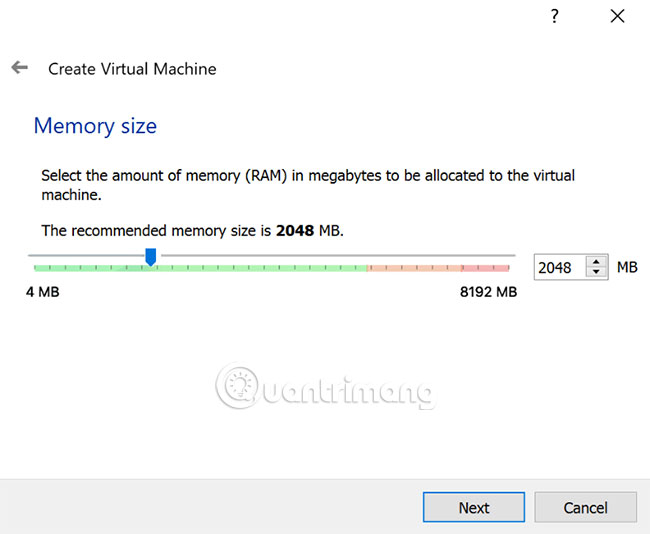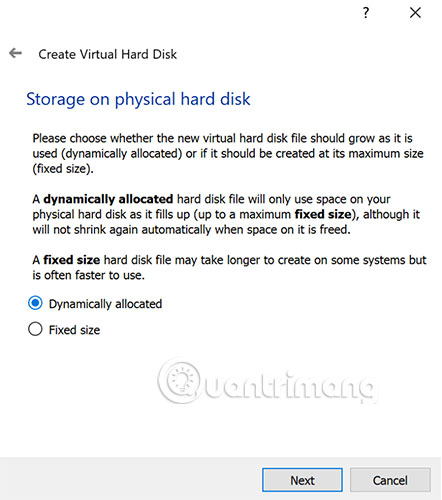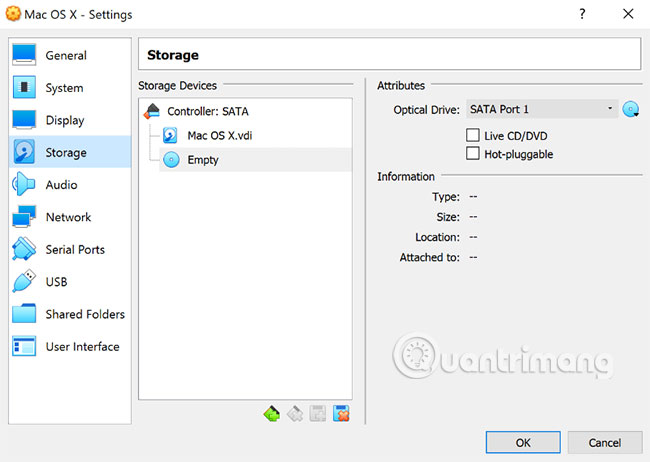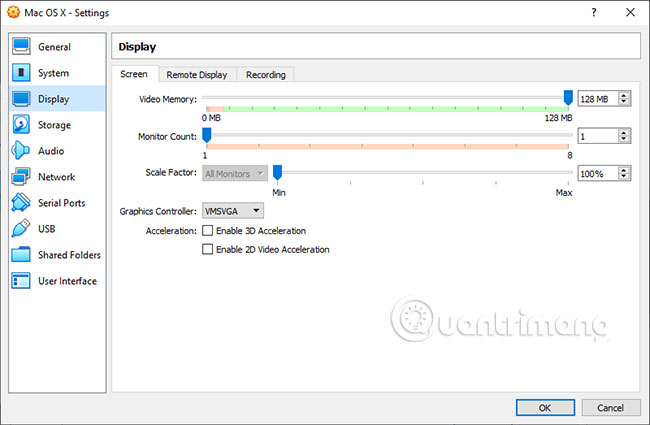How to install macOS in VirtualBox
As a Windows user, you may sometimes need to use macOS but don't have the money to buy a separate Mac. Apple has always made it difficult to install its operating system on non-Apple hardware, making it difficult to take advantage of this delicate operating system.
However, with VirtualBox, you can install macOS on a Windows PC. Along TipsMake.com learn how to do through the following article offline!
What you need
First, you will need to download a copy of Oracle VM VirtualBox. You will also need an ISO image of the macOS version you want to install.
Holding an ISO is actually harder than you think. Without access to your Mac, you will not be able to download a copy of the operating system you have installed. If your Mac is running macOS Mojave, open the macOS High Sierra page in the App Store and download the installer from there.
You will need to convert this APP file to DMG and then convert from DMG to ISO to be able to install the file in VirtualBox. A less complicated but less secure option is to look for the ISO of the desired version of macOS. There are many websites with these ISOs, but downloading ISO from an unofficial website also carries certain risks.
How to create a macOS virtual machine
Install VirtualBox on your Windows PC by following these instructions.
1. Click New to create a new virtual machine.

2. Use the name of the macOS version to name the virtual machine. For example: High Sierra or Mojave. The type and version will automatically fill in with the correct settings.

3. Select the amount of RAM allocated to the virtual machine. Allocating more RAM will help speed up the virtual machine, but make sure you leave enough RAM for your server operating system (whether it's Windows Windows or Linux).

4. Select Create a virtual hard disk now and click the Create button . Keep the default VDI settings and click Next.

5. Decide whether you want the virtual hard drive size to be Dynamically allocated or Fixed size . A Dynamically allocated drive will start small and increase in size as more space is needed. A Fixed size drive will immediately take up the space set on your physical hard drive.

6. Select the size of the virtual hard drive. Click Create to finish creating the virtual machine.

Besides, you can install VirtualBox on a Windows 7 PC by following the instructions in the article: Basic steps to set up a virtual machine system with VirtualBox on a PC or How to run macOS on Windows 10 in a virtual machine if You are using Windows 10.
Final configuration
1. With the virtual machine highlighted, click Settings. Select System from the menu on the left and make sure Floppy is not used in the Boot Order settings yet . This will ensure that the virtual machine boots from the High Sierra disc image. Make sure you have the Base Memory set to the right level - at least 2048 MB.

2. Once in the System menu , click the Processor tab . Set the number of CPUs to at least two and make sure Enable PAE / NX is enabled.

3. Select the Storage menu from the sidebar. In Storage Devices, click Empty. Click the optical drive icon in the upper right corner of the screen and select the ISO High Sierra file, make sure Use Host I / O cache is enabled. Click OK to save the changes.

4. Continue with the Display section on the screen and set Video Memory to 128MB, then click OK to save.

5. Before you can run macOS in a virtual machine, you will need to run the following commands from a command line or PowerShell with admin rights on Windows or terminal on Linux. Make sure VirtualBox is closed before you try this.
For Windows users, the following commands will work immediately. Linux users will need to add sudo to the beginning of each VBoxManage command and replace the position on the first line with the location of VirtualBox, as installed on the Linux distribution.
cd "C:Program FilesOracleVirtualBox" VBoxManage modifyvm "macos" --cpuidset 00000001 000106e5 00100800 0098e3fd bfebfbff VBoxManage setextradata "macos" "VBoxInternal/Devices/efi/0/Config/DmiSystemProduct" "iMac11,3" VBoxManage setextradata "macos" "VBoxInternal/Devices/efi/0/Config/DmiSystemVersion" "1.0" VBoxManage setextradata "macos" "VBoxInternal/Devices/efi/0/Config/DmiBoardProduct" "Iloveapple" VBoxManage setextradata "macos" "VBoxInternal/Devices/smc/0/Config/DeviceKey" "ourhardworkbythesewordsguardedpleasedontsteal(c)AppleComputerInc" VBoxManage setextradata "macos" "VBoxInternal/Devices/smc/0/Config/GetKeyFromRealSMC" 1 6. Finally, open VirtualBox again, click the green Start arrow to start the virtual machine, then follow the instructions to install macOS.

MacOS is not installed in VirtualBox. Anytime you want to use it, just launch VirtualBox and start the virtual machine. When you're done, you can close VirtualBox or shut down through your macOS virtual machine.
Do you have macOS running on a Windows PC? Do you have any optimal installation tips and tricks? Share your thoughts with everyone in the comments section below!
Hope you are succesful.